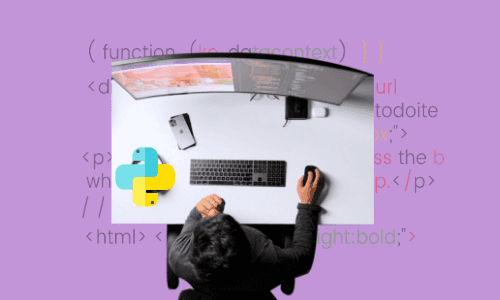Contents
Of your course.
module 1
Introduction to Python
+
-
Introduction to Python
In this lesson you will learn the basics of Python by exploring the programming language briefly. You will also install the required software to get your started for programming.
Python Variables
Variables are one of the foundation of programming. In this lesson you will learn why variables are so important and the various primitive data types often used when creating variables.
Understanding Python Operators
In this you will learn how to use Python operators to perform commonly used operations. This includes assignment, arithmetic, comparison and logic.
Using Conditionals in Python
More often than not your program will require decision-making capabilities. In this lesson you will learn how to use control structures, such as the if… else… logic to perform specific operations based on a condition.
Working with Python Functions
In this lesson you will learn the importance of code reusability by developing your very own Python functions to perform a specific task.
Understanding Iteration with Python Loops
Iteration is fundamental to programing when you need to perform a specific task over and over. In this lesson you will explore the different types of commonly used loops that are used to perform repetitive tasks.
Python Modules
The use of modules is a great way to package relatable functions that can be called in other script environments. In this lesson you will learn how to use existing built-in Python modules and you will also create your own.
Python Lists and Dictionaries
In this lesson you will learn how to store multiple data items in a single variable. This is an important aspect of object-orientated programming - objects often consist of layers and dimensions. You will learn the key differences between lists and dictionaries and how to interact with them as objects based on their native functions.





